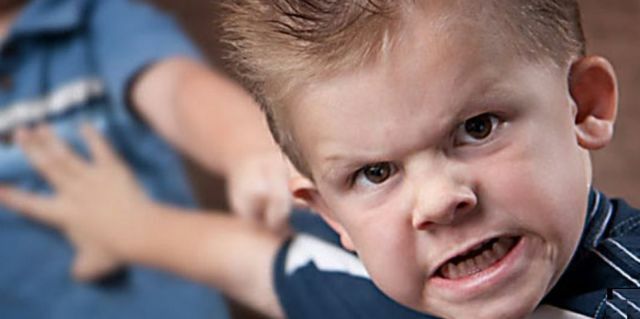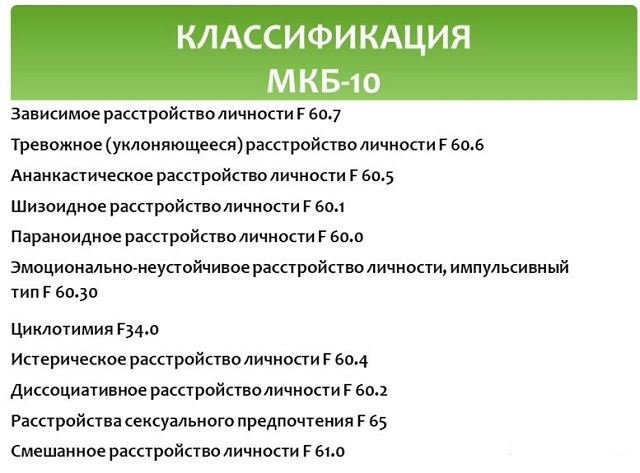 Failures in the CNS caused by various congenital or acquired diseases, organic brain damage and loss of attention due to mental disorders affect the ability to preserve and reproduce information that is the basis of reasonable human activity.
Failures in the CNS caused by various congenital or acquired diseases, organic brain damage and loss of attention due to mental disorders affect the ability to preserve and reproduce information that is the basis of reasonable human activity.
As a result of the destruction of the memory mechanism, progressive mental abnormalities develop. Such syndromes have a common name of intellectual-mnestic disorders. They are innate and acquired, total and lacunar.
Content
- Forms of intellectual and memory impairment
- Korsakov's syndrome
- Dementivny
- syndrome Psychoorganic
- syndrome Congenital forms of dementia
- causes and triggers
- Diagnosis and treatment concept
- Treatment of intellectually-mental disorders
Forms of intellectual and mnemonic
violations in the classification is based on dysmnesia,including:
- hypermuseness - the inability to isolate the main events from the secondaryat elevated memorability;
- hypnosis - weakening of memory as a whole;
- retrograde amnesia - loss of memories preceding the onset of the disease;
- fixation amnesia - disconnection of short-term memory;
- progressive amnesia - gradual erasure of memory.
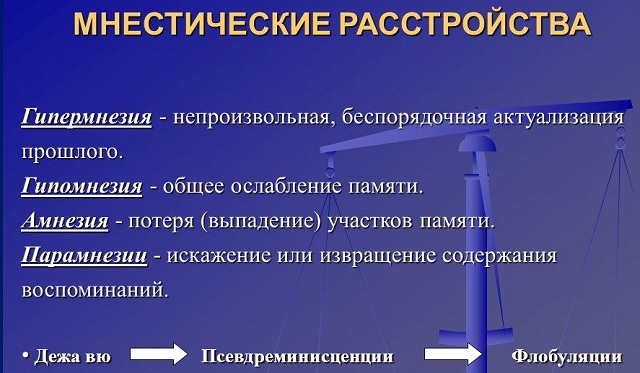
The main symptom of these diseases is the degradation of the mental and mnestic abilities of the individual.
Korsakov's syndrome
When Korsakov's syndrome disappears, the ability to preserve the memories of the immediate past, but does not affect long-term memory.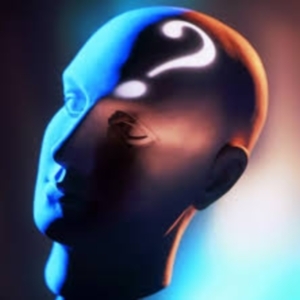
Failures in the memory of the patient fills his own fantasies and fiction. A person turns out to be unadapted to the current situation: he can not name the day, hour and place of his location, with whom and about what he recently communicated. Apathy, irritability, fast fatigue are characteristic signs of patients with Korsakov's amnestic syndrome.
Most often such a syndrome affects the elderly, patients after a stroke, intoxication, head and brain injuries, delirium. In the absence of organic damage to the brain, recovery of short-term memory is possible.
Dementia syndrome
Dementia is a progressive dementia in which general memory impairment occurs, speech is distorted, motor functions are disrupted, and self-control and adaptation skills are lost.
Depending on the area of the brain, atrophic, vascular or mixed forms of dementia develop, varying degrees of severity, in the form of total( complete disappearance of the intellect and personality) or lacunary( loss of intelligence with retention of personality) dementia.
Atrophic dementias - diseases called "senile marasmus" are progressive, incurable. They end with the disintegration of the personality( Alzheimer's disease), disability( Parkinson's disease) or personality changes( Pick's disease).The age of patients is from 50 to 65 years. Drug addiction and alcoholism can reduce the age-limit.
In patients with vascular dementia against a background of fixative and progressive amnesia, lacunar dementia develops, accompanied by apathy, lethargy, unstable gait, and urinary incontinence.
Psycho-organic syndrome
Psycho-organic syndrome means mental weakness, expressed in the weakening of memory, loss of will and ingenuity, emotional instability. The disease can develop at any age, but prevails in the advanced, which is associated with atrophic changes in the brain.
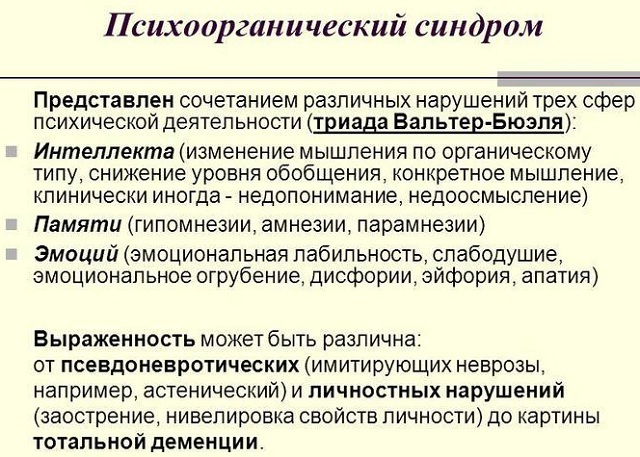
There are four types of syndrome, they are all part of the same progressive process:
- asthenic is unstable behavior and an inadequate response to ordinary events and things that drain the patient's mental and physical strength, without reducing mental abilities;
- euphoric - benign bustling stupidity, with explosions of anger and anger, turning into a depressive-tearful state;
- with the explosive variant to the signs of the first two types is added weakening of the will, memory impairment and craving for alcohol;
- in case of apathetic variant there is a sharp decrease in memory and intelligence, lack of will and indifference to what is happening.
 Patients with organic psychosyndrome are weather-dependent and the more stable this connection, the less the degree of brain damage. There are also acute and chronic forms of encephalopathic syndrome.
Patients with organic psychosyndrome are weather-dependent and the more stable this connection, the less the degree of brain damage. There are also acute and chronic forms of encephalopathic syndrome.
This intellectual mnestic disorder can also affect children of any age, which is associated with a violation of the formation and development of the child's brain. A long period of speech development, impulsiveness, restlessness, inattention, reassessment of one's abilities are signs of an emerging psychosyndrome.
Congenital dementia forms
Oligophrenia is an inherited dementia caused by hereditary, external factors or a combination of them. To date, about 300 hereditary diseases are the cause of mental retardation. Down's disease and microcephaly are a consequence of genetic pathology.
Oligophrenia has three stages:
- The debility of is an easy degree of mental and mental inferiority in which adult development corresponds to a 12-year-old age.
- Imbeciles remain for life at the level of 3-7-year-old child. Their speech is primitive, but understandable. Behavior is not aggressive.
- Idiocy - total dementia, in which the personality is not formed, mental abilities correspond to a 3-year-old child, constant care and monitoring of behavior is required.
Causes and provoking factors
Disturbances in the brain due to damage to nerve cells due to illness, trauma or age-related fading are the causes of intellectual-mnestic disorders.
Memory impairment can also be caused by a decrease in concentration( attention), impaired consciousness. In the first case, 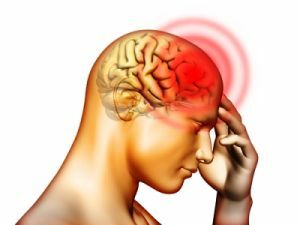 disorders are irreversible, in the second case, the mnestic and intellectual processes can be fully recovered.
disorders are irreversible, in the second case, the mnestic and intellectual processes can be fully recovered.
The onset of the Korsakov syndrome is affected by brain tumors, hypoxia, circulatory disorders of the brain, craniocerebral trauma, bilateral defeat of limbic systems, severe poisoning, including alcoholic, lack of vitamin B( provokes gliosis, necrosis and destruction of capillaries).
Atrophy of nerve cells in the temporal parietal region with spreading to the occipital and frontal parts is the cause of Alzheimer's disease.
Degeneration of the frontal and frontotemporal cortical zone causes Pick's disease. Parkinson's disease is the consequences of atherosclerosis, damage to the middle brain( cells of a black substance), heredity and recurring brain injuries.
Vascular dementia is the result of a violation of the blood supply to the brain due to atherosclerosis, stroke, ischemia, heart failure.
The onset of psychoorganic syndrome is provoked by various factors:
- cerebrovascular diseases;
- atherosclerotic lesions;
- neoplasms of the brain( cysts and tumors);
- encephalitis;
- traumatic brain injury;
- atrophy of brain cells;
- by neurosyphilis;
- brain abscess;
- epilepsy.
Adverse pregnancy, severe labor, infectious and endocrine diseases of the mother and alcoholism affect the blood supply to the child's brain, violate its normal development, which can cause the birth of oligophrenia. Rubella, toxoplasmosis, cytomegalovirus and syphilis are precursors of embryopathy and fetopathy.
Diagnosis and treatment concept
Oligophrenia and its degree are determined using standard psychological tests, thanks to which the intellectual coefficient( IQ) is derived:
- idiocy - IQ & lt;20;
- Imbecility - IQ 20-49;
- debility - IQ 50-69.
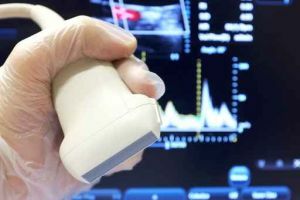 Diagnosis of psycho-organic, Korsakov, dement and associated syndromes depends on the underlying disease that caused the deviations.
Diagnosis of psycho-organic, Korsakov, dement and associated syndromes depends on the underlying disease that caused the deviations.
Standard instruments for examining the patient - MRI, CT, ultrasound of the brain, as well as blood tests and monitoring by a psychiatrist.
Treatment of intellectual-mnestic disorders
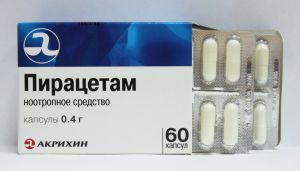
Piracetam - one of the most famous nootropics
Psychosyndrome therapy is aimed at treating the underlying disease and, depending on the severity, is performed on an outpatient basis or in a hospital.
Used medications are neuroleptics, nootropic and cerebral preparations, antioxidants and vitamins.
Treatment of oligophrenia is aimed at eliminating the symptoms of the diseases that caused it, and adaptive rehabilitation at home or in special institutions. Prescribed medications:
- antibiotics( with syphilis, toxoplasmol);
- psychotropic;
- hormonal( with endocrine disorders);
- diet therapy( for metabolic disorders).
Treatment for Korsakov's syndrome is aimed at treating the underlying disease: nootropics, vitamins( B1), protein diet are prescribed.
Dementia is an incurable, progressive disease, with unexplained causes. Treatment is prescribed depending on the stage of the disease. Medicamentous treatment includes nootropic and psychotropic drugs.

